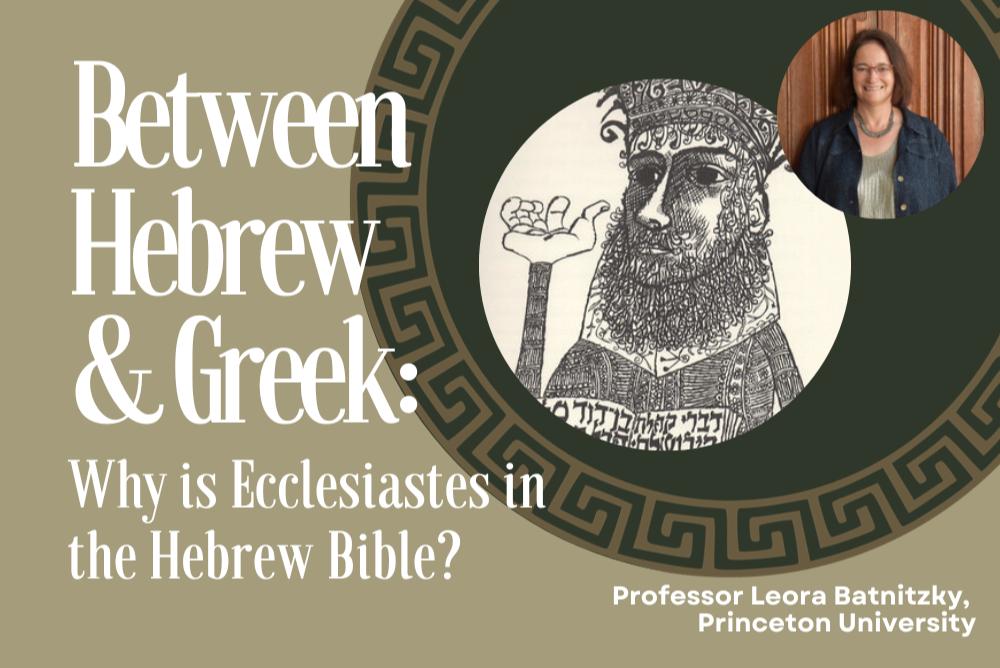Judaic Studies
[PAST EVENT] Between Hebrew and Greek: Why is Ecclesiastes in the Hebrew Bible? [Leora Batnitzky]
Access & Features
- Open to the public

Professor Leora Batnitzky visits W&M from Princeton University! Her talk will involve the following:
The book of Ecclesiastes has presented its long history of interpreters with a provocation: how, if at all, does Ecclesiastes’ claim that “all is vanity” (1:2) cohere with the Hebrew Bible’s most basic themes (such as creation, revelation, and covenant) and commitments (such as reward for the righteous and punishment for the wicked)? At the same time, Ecclesiastes’ stark acknowledgment of human finitude has given voice to what remains a universal, if not timeless, existential question: faced with a world that continues to defeat any quest for certainty or permanence, what can we say about wisdom and the meaning of human life? Like the book of Job, Ecclesiastes highlights the suffering of innocents, but Ecclesiastes, unlike Job, also raises other big questions about human life. Is wisdom valuable or even attainable? Is there any worth or purpose to human work and labor? Is human freedom possible in a world in which everything is determined in ways that human beings can never comprehend? Given the fleetingness of human existence, what kind of life ought we to lead? In reflecting on these broad themes, Ecclesiastes is the closest that the Hebrew Bible gets to philosophy. This talk reflects on Ecclesiastes’ relationship to Greek philosophy and asks whether and how the book fits into the Hebrew Bible.
Contact
[[rlrashkover]]
